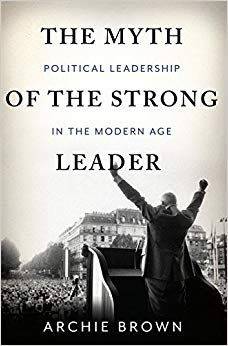
Download The Myth of the Strong Leader: Political Leadership in the Modern Age PDF EPUB
Author: Archie Brown
Pages: 480
Size: 2.069,94 Kb
Publication Date: April 8,2014
Category: Leadership
In one of the world’s preeminent political historians, a magisterial research of political leadership all over the world from the introduction of parliamentary democracy to age Obama.
All too often, leadership is decreased to a straightforward dichotomy: the solid versus the fragile.
The truth is, just a minority of political leaders will really make a long lasting difference. Whether talking about redefining leaders like Franklin Delano Roosevelt, Lyndon Johnson, and Margaret Thatcher, who expanded the limitations of that which was politically possible throughout their amount of time in power, or the actually rarer transformational leaders who played a decisive function in causing systemic change–Charles de Gaulle, Mikhail Gorbachev and Nelson Mandela, among them–Brown difficulties our commonly kept beliefs about political efficacy and power. In this magisterial and wide-ranging study of political leadership in the last hundred years, famous Oxford politics professor Archie Dark brown issues the widespread belief that solid leaders–meaning those that dominate their co-workers and the policy-producing process–are the most effective and admirable. However, there are myriad methods to workout effective political leadership–as well as various ways to fail. Though we have a tendency to dismiss even more collegial varieties of leadership as poor, it is the most cooperative leaders who’ve the best impact. Drawing on comprehensive research and years of political evaluation and experience, Dark brown illuminates the achievements, failures and foibles of a wide array of twentieth hundred years politicians. We blame our leaders for financial downfalls and compliment them for vital cultural reforms, but hardly ever do we question why is some leaders effective while some falter. The Myth of the Solid Innovator compels us to reassess the leaders who’ve shaped the world - also to reconsider how exactly we should select and evaluate those that will lead us in to the potential.
Overturning quite a few assumptions about the twentieth century’s most significant numbers, Brown’s conclusions are both primary and enlightening.